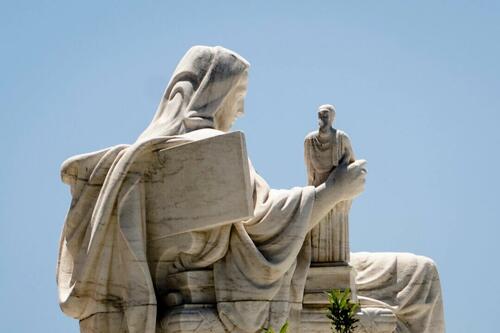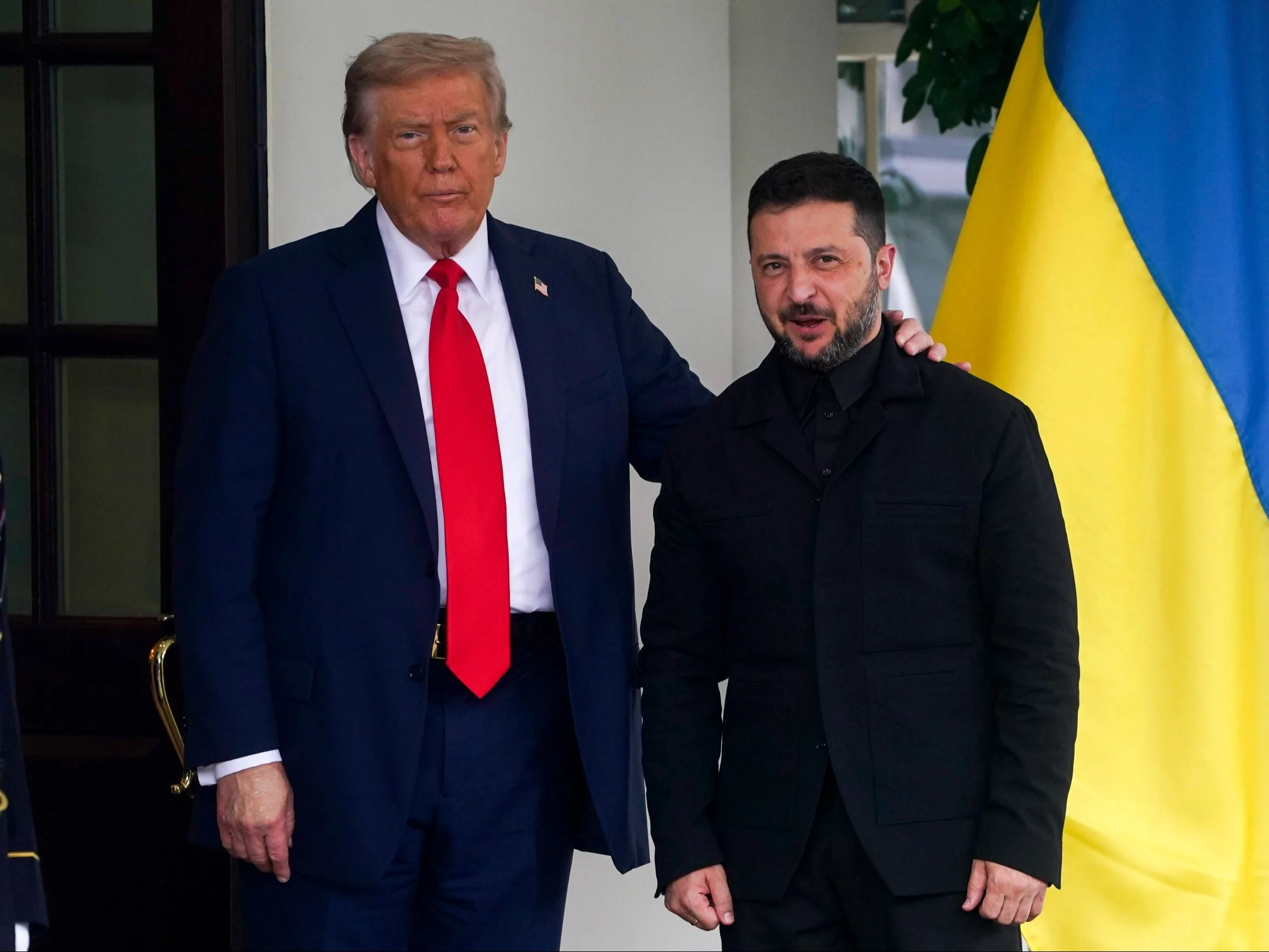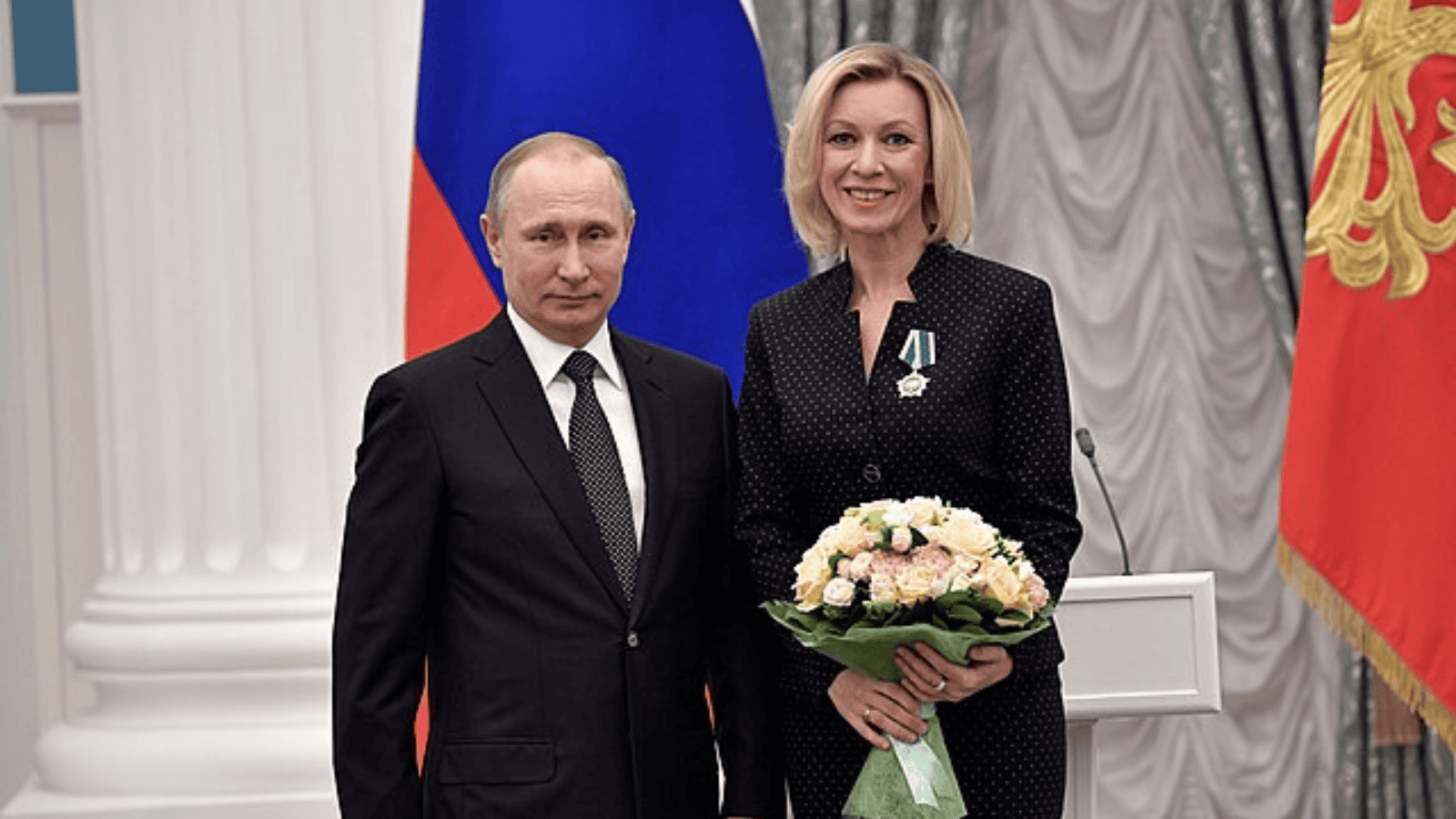Supreme Court Rules 9–0 Wisconsin Violated First Amendment By Denying Tax Exemption To Catholic Charity
Authored by Matthew Vadum via The Epoch Times (emphasis ours),
The U.S. Supreme Court on June 5 ruled unanimously that Wisconsin violated the First Amendment by not granting a Catholic charity an exemption from paying unemployment tax.
 The Contemplation of Justice statue at the U.S. Supreme Court building in Washington on May 19, 2025. Madalina Vasiliu/The Epoch Times
The Contemplation of Justice statue at the U.S. Supreme Court building in Washington on May 19, 2025. Madalina Vasiliu/The Epoch TimesJustice Sonia Sotomayor wrote the 9–0 opinion in Catholic Charities Bureau v. Wisconsin Labor and Industry Review Commission.
Catholic Charities Bureau is a nonprofit organization that functions as an arm of the Roman Catholic Diocese of Superior, Wisconsin. The bureau oversees several other entities that render charitable services to communities across the state.
Wisconsin law excuses religious organizations that are “operated, supervised, controlled, or principally supported by a church or convention or association of churches” from paying state unemployment tax.
The petitioner, Catholic Charities, argued that it is unconstitutional to allow the state to decide what work is religious in nature.
“The First Amendment mandates government neutrality between religions and subjects any state-sponsored denominational preference to strict scrutiny. The Wisconsin Supreme Court’s application of [the state statute] imposed a denominational preference by differentiating between religions based on theological lines. Because the law’s application does not survive strict scrutiny, it cannot stand,” the justice wrote.
Strict scrutiny is the highest level of review used by the courts. Under it, the government has to show that a law is narrowly tailored to advance a compelling governmental interest and that the law is the least restrictive way to serve that interest.
Sotomayor wrote that Wisconsin is not the only jurisdiction that exempts religious organizations from paying taxes to cover unemployment compensation programs. Since Congress in 1970 approved the Federal Unemployment Tax Act, which contains language similar to that found in the Wisconsin law, more than 40 states have adopted similarly worded tax exemptions.
The Supreme Court of Wisconsin held 4–3 in March 2024 that Catholic Charities and its four related organizations that serve the developmentally disabled are not “operated primarily for religious purposes,” so they fail to meet the requirements for a tax exemption.
That court held that the activities of Catholic Charities do not qualify as “typical” religious activities because the organization does not “attempt to imbue program participants with the Catholic faith” and because the help it provides to those with mental and developmental disabilities could be carried out by secular organizations.
Sotomayor wrote that this means that the state court held that the organization could only qualify for the tax exemption if, when providing charitable services, it “engaged in proselytization or limited their … services to fellow Catholics.”
The organization’s Catholic faith prevents it from using charity to proselytize, while many other religious organizations take a different approach, she wrote. This means that Wisconsin’s law on tax exemptions expresses a preference for some religious denominations over others “based on theological choices.”
Because the Wisconsin law distinguishes among religions on the basis of theological distinctions, it imposed “a denominational preference that must satisfy the highest level of judicial scrutiny.”
“Because Wisconsin has transgressed that principle without the tailoring necessary to survive such scrutiny,” the lower court’s decision must be overturned, she wrote.
The U.S. Supreme Court reversed the ruling of the Supreme Court of Wisconsin and sent the case back to that court “for further proceedings not inconsistent with this opinion.”
The attorney for Catholic Charities, Eric Rassbach, hailed the new ruling.
“It was always absurd to claim that Catholic Charities wasn’t religious because it helps everyone, no matter their religion,” Rassbach, vice president and senior counsel at the Becket Fund for Religious Liberty, told The Epoch Times.
“Today, the Court resoundingly reaffirmed a fundamental truth of our constitutional order: The First Amendment protects all religious beliefs, not just those the government favors.”
The Epoch Times reached out for comment to the Wisconsin Department of Justice, which represents the Wisconsin Labor and Industry Review Commission. No reply was received by publication time.
Tyler Durden
Mon, 06/09/2025 – 14:05












